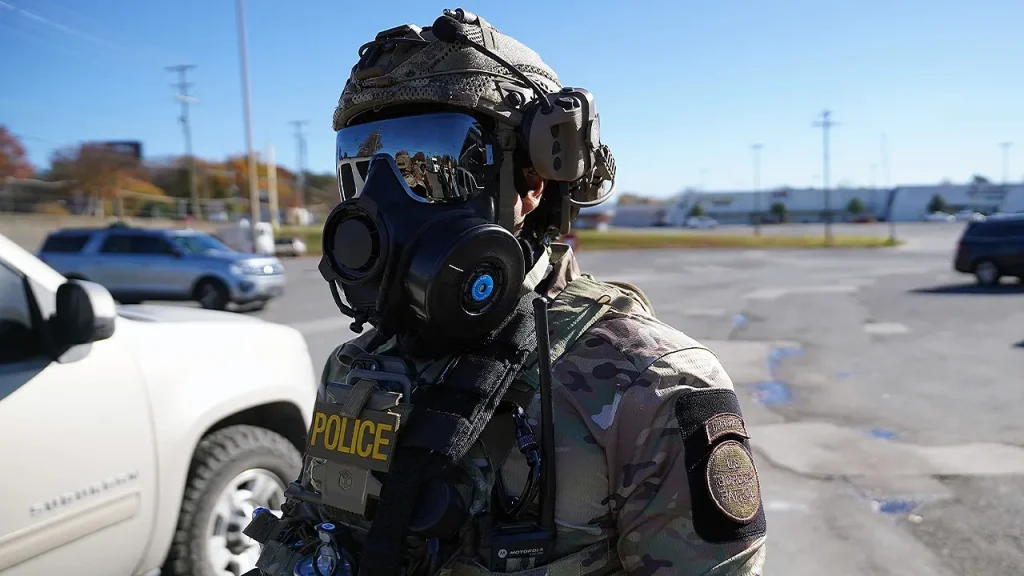Federal Immigration Crackdown in Charlotte Stirs Community Response
In a sweeping operation dubbed “Charlotte’s Web,” federal agents have arrested 130 individuals in Charlotte, North Carolina within just 48 hours, marking a significant escalation in President Trump’s immigration enforcement efforts. According to the Department of Homeland Security, the operation specifically targeted individuals with criminal backgrounds, resulting in the detention of 44 criminal illegal aliens whose records include serious offenses such as aggravated assault, assault with dangerous weapons, assault on police officers, and driving under the influence. Two known gang members were among those apprehended, including an MS-13 member. Greg Bovino, the commander leading this initiative for U.S. Customs and Border Protection, had previously announced on social media that his agents would “hit Charlotte like a storm”—a promise that appears to have materialized as agents in tactical gear spread throughout the state making arrests.
The operation has sparked significant controversy within the Charlotte community, with local leadership expressing deep concerns about its impact. Charlotte Mayor Vi Lyles, along with other elected officials from Charlotte and Mecklenburg County, released a joint statement condemning the CBP operations for “causing unnecessary fear and uncertainty in our community.” Their statement emphasized the importance of all residents feeling secure in their daily lives without living in fear while going about routine activities like walking down the street, attending school, working, or shopping for groceries. The impact on daily life has been substantial—approximately 20,935 students were absent from school across 185 institutions in the Charlotte-Mecklenburg district according to local reports, with Hispanic students comprising 31% of the student population. Some Latino-owned businesses, including Manolo’s Bakery, have temporarily closed their doors in response to the CBP activity, with owner Manolo Betancur expressing his distress in an Instagram post: “Just made me sick, man. Sick to my stomach. I’m an American citizen and I have to carry my passport because the way I look, the way I talk, and because of my accent.”
The enforcement actions have not been without incident. DHS Assistant Secretary Tricia McLaughlin reported that CBP agents faced two separate vehicle ramming incidents during operations on Sunday. In one case, a driver jumped a curb to enter a parking lot where agents were preparing for an operation and drove toward them despite warnings to stop. The vehicle then positioned itself to block Border Patrol’s exit before ramming a law enforcement vehicle and fleeing. Agents pursued and eventually arrested the driver, whom McLaughlin identified as “a transgender perpetrator.” In a separate incident, a U.S. citizen accelerated a van toward officers conducting an enforcement operation near the University City area. The local resistance has also manifested in direct confrontations, with footage capturing dozens of protesters recording federal agents, yelling obscenities, and blowing whistles. One protester was recorded screaming, “F— you! Get out!” while waving arms toward agents in tactical gear, while another shouted, “Our city—not yours!”
The immigration enforcement action in Charlotte appears to be part of a broader national strategy by the Trump administration targeting so-called “sanctuary jurisdictions”—cities where local authorities limit their cooperation with federal immigration enforcement. Similar operations have previously taken place in major metropolitan areas including Los Angeles and Chicago. Charlotte’s designation as a sanctuary jurisdiction means local law enforcement agencies have restrictions on how they can assist immigration agents. When asked for comment on the ongoing operations, the Charlotte-Mecklenburg Sheriff’s Office declined to respond. Meanwhile, the federal immigration crackdown is expanding to other locations—Mayor Janet Cowell of Raleigh, North Carolina, approximately 170 miles north of Charlotte, confirmed in a statement that federal agents are moving to her city next, though she emphasized that the Raleigh Police Department has not participated in any immigration planning activities.
The situation in Charlotte highlights the tensions between federal immigration policy and local governance. While the federal government maintains authority over immigration enforcement, cities and counties across the country have adopted various positions on how much they will cooperate with these efforts. In Charlotte’s case, the significant community response—from school absences to business closures to street protests—demonstrates the immediate social and economic impacts of heightened immigration enforcement. The closing of businesses like Manolo’s Bakery, which its owner says had never closed in 28 years prior to this operation, represents tangible economic consequences. Similarly, the thousands of students missing school illustrates how fear can disrupt education and other essential services, particularly in communities with large immigrant populations.
Following the Charlotte operation, federal agents are already preparing to move on to other locations. According to Governor Jeff Landry, New Orleans, Louisiana is slated to be the next target in an operation dubbed “Operation Catahoula Crunch.” This continuing nationwide effort reflects the administration’s commitment to enforcing immigration laws despite local resistance in many jurisdictions. As federal agents move from city to city, similar patterns of community disruption, local government opposition, and direct confrontations between protesters and law enforcement may continue to emerge. The situation in Charlotte serves as a microcosm of the broader national debate over immigration enforcement—balancing federal authority, local autonomy, community safety, and the human impact of these policies on families and neighborhoods across America.


